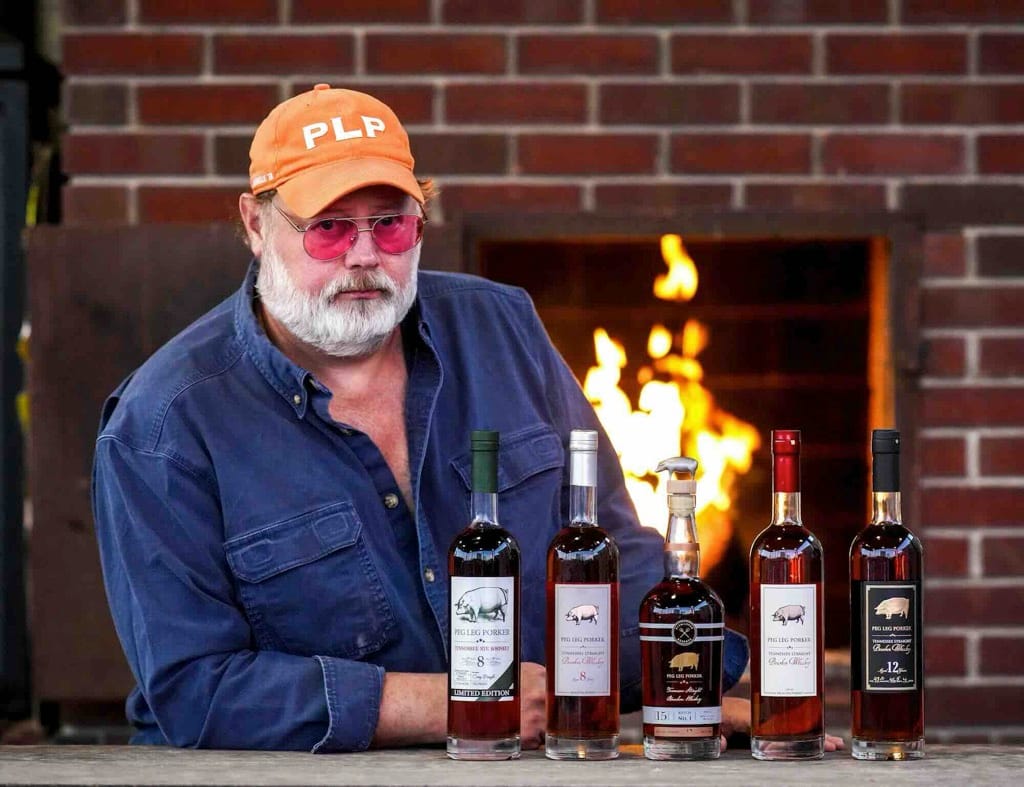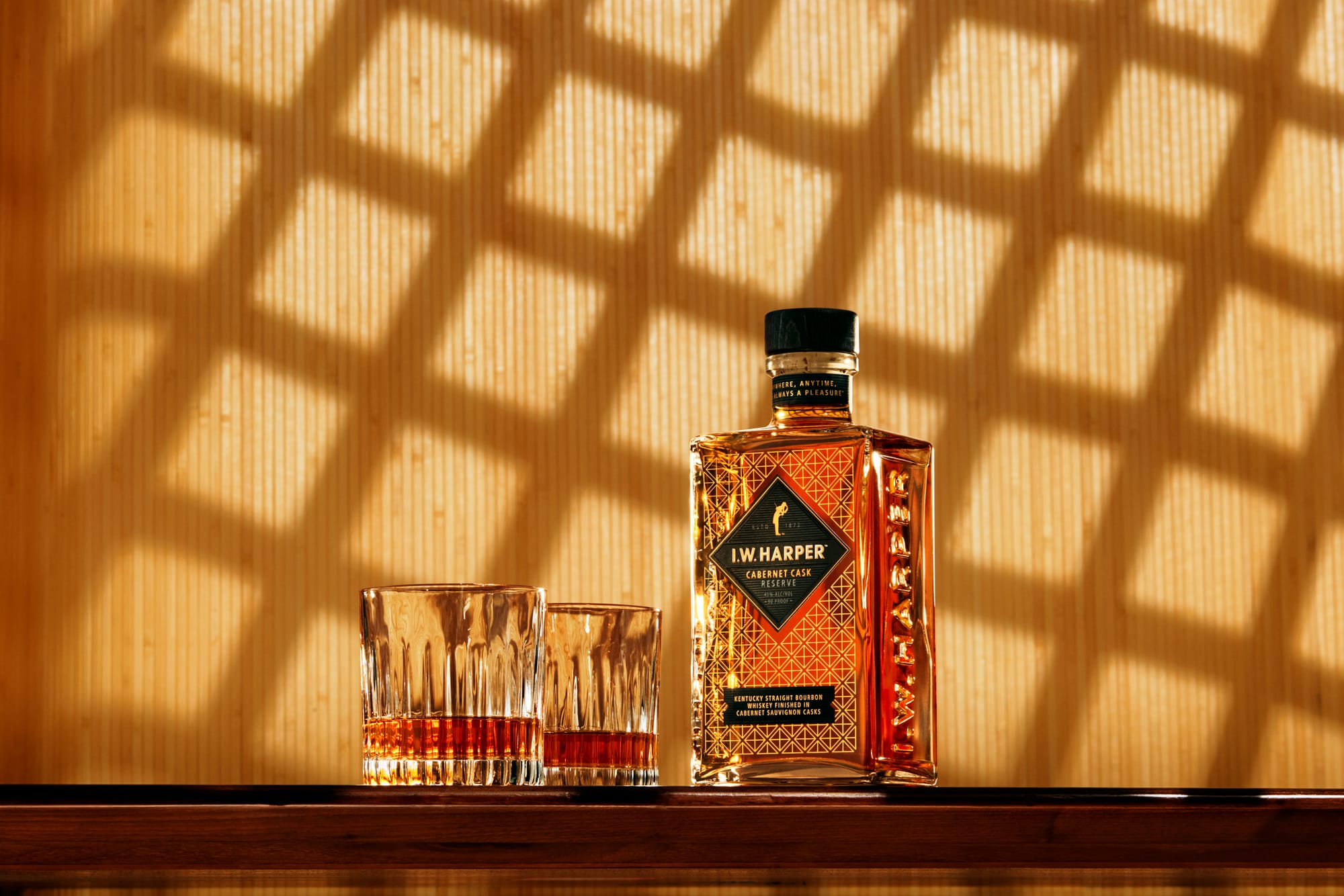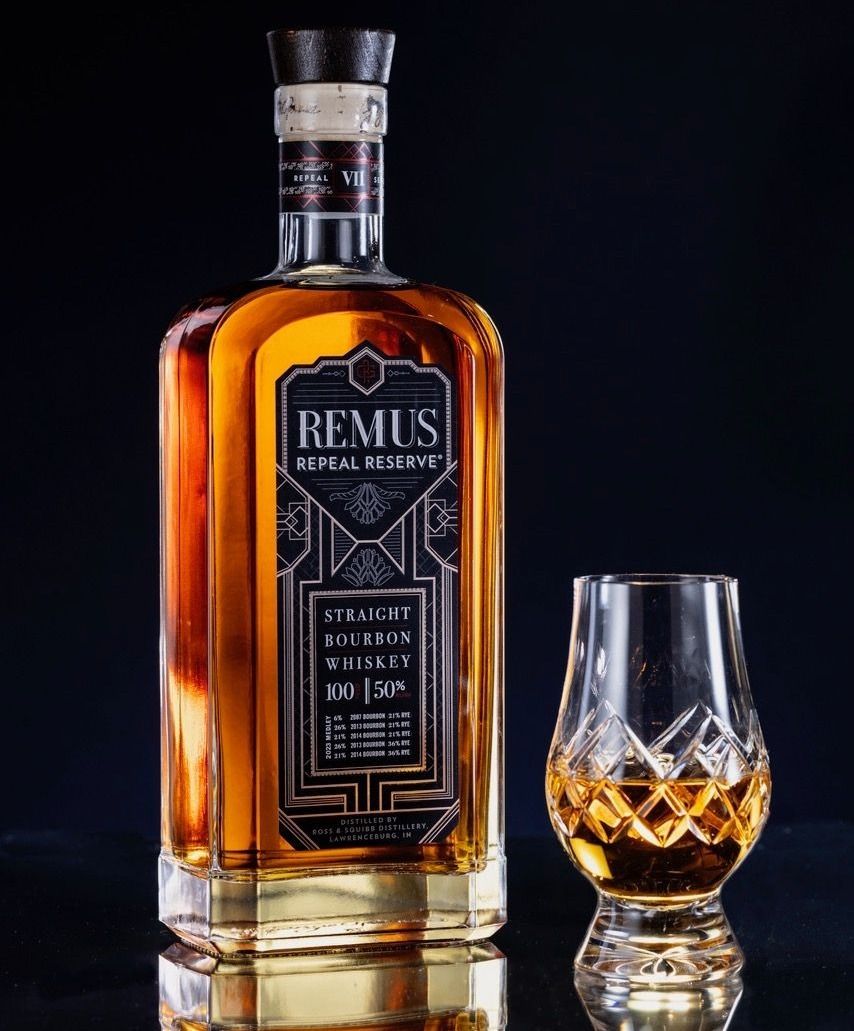During Carey Bringle’s corporate sales and marketing career, his side hustle was barbecue caterer. Leveraging his talent and passion for smoking meats, he dove into barbecue full-time in 2013 with Peg Leg Porker BBQ, an expansive restaurant and bar he co-owns with his wife, Delaniah, in Nashville’s trendy Gulch neighborhood.
And as if the big and busy restaurant didn’t burden him enough, that same year he created Peg Leg Porker Spirits and its flagship liquid, Peg Leg Porker Tennessee Bourbon. That’s right, not Tennessee whiskey—even though he uses hickory charcoal to create just a whiff of smoke in his spirits.
Like his barbecue business (one of four total restaurant concepts), he’s built his spirits brand slowly and sustainably, growing market share within the reach of the brand, adding markets cautiously, and collecting numerous spirits awards along the way (including “World’s Best Bourbon,” Tasting Alliance World Championship, 2023).
I met Bringle in 2019 to write a story on pairing barbecue and bourbon. Knowing next to nothing about his bourbon, I wondered about the quality of a barbecue man’s whiskey. As we ate a mountain of barbecue and sipped from the numerous bottles shown on the table in the photo above, it was clear that his was not only delicious, but well suited for my favorite food and drink pairing.
A man of firm opinions, Bringle is also hilarious. The face in the photo below belies his easy laugh and friendly grin, and it shows his growing line of PLB whiskeys.

In his words …
I’m a bourbon drinker. Always have been. I’ve worked with Jim Beam Black for years since they became the sponsor of my barbecue team, The Peg Leg Porkers. They still sponsor my BBQ team even though I have my whiskey brand.
I got into the whiskey business at about the worst possible time—right after the restaurant had just opened. I’d always wanted to do my own whiskey brand but never dreamed it would happen. I had a friend from Beam whose son wanted to buy a batch of (barreled) bourbon. He wanted to sell some of it off to lower his risk, and he offered that portion to me. We put together $50,000 and bought it.
As my brand was coming out and I started talking about it, some people would say, “Oh, so you took somebody else’s bourbon and slapped your label on it.” Well, that probably got under my skin a bit, so I started thinking about how to differentiate it. Eventually I developed my own process to finish this bourbon.
A lot of people expected me to have a smoked bourbon because of my barbecue background. But one thing I know a lot about is smoke and fire, and smoke is bitter and acrid. If you merely smoked the bourbon, you’ve captured those pollutants in the liquid, and that’s not what I wanted to do. What I needed was something that would capture the flavor of barbecue in the bourbon.
So, I loaded up our pit up with charcoal, shoveled some (burned) coals out of the firebox and put them into a bucket of water. In very small batches I’d pour my whiskey through those coals. The effect was extremely subtle, but it changed flavor enough to be different. It had the flavor I was after.
I still use some coals from our pit to do that, but as we got bigger, I found a commercial source of byproduct, which is fine, like sand. It gives me more surface area and saturation with the bourbon. We do that after we de-barrel the bourbon, which I think gives it a little cleaner taste and makes it a little smoother. It also imparts the smoke flavor.
Personally, I like 8-year-old whiskey, which I think is kind of a sweet spot for bourbon. But we’ve got older stuff, including a barrel from the first lot that I ever bought. It’s 16 years old and it’s 148 proof. I was asking a chemist if I should bottle it at 148. All I know is when I try it, I feel like I’m being stabbed in neck!
We started small, and in the past several years we did 3,000 to 4,000 cases. Now we have our own botting facility, and this year we’ll do 10,000 cases. Next year we’ll ramp up to 25,000 cases. We’re in 11 states now, and the next are Texas and Florida, which are behemoth markets.
In 2019, we started contract distilling with Tennessee Distilling in Columbia, and laying down our own barrels. We still buy mature product if it’s good and available. But now we have our own supply in addition to that, which means we control our own destiny a lot more than we have in the past.
I’m a rarity in the whiskey industry since I’m 100 percent independent. No partners, backers or outside investors. Just me and the bank. You need some deep pockets and big balls to do it that way. If you don’t have that, you ought not get in this business.
We want to grow the business for sure, but we want our bottles to be more allocated. We don’t want to be a commodity bourbon, but our PLP white label is a $40 daily drinker. Too many of our (craft) peers come into the market with $60 and $100 bottles that people aren’t buying. I don’t think that’s a sustainable brand.
So, what’s harder: A whiskey business or a restaurant business? They’re very different, but both are fun. I’m lucky that I’m doing two the things I absolutely love. You’re dealing with a lot of people in the restaurant industry: customers, of course, and employees you have to train to keep the product consistent every day. But bourbon … you get it right on the front end or you don’t. I can also run the bourbon operation with far fewer employees and produce similar revenue with a bigger margin—sometimes, anyway.
We’ve taken the approach that turtle wins the race, so we’re trying to build a lasting and sustainable brand. Still, we might sell the brand someday—if we get the right offer. This business is not for the faint of heart. It’s capital intensive and comes with risks, so again, if we get the right offer. But if we don’t sell, we have a viable and profitable business that’s built for the long haul. We can operate that and enjoy it.




